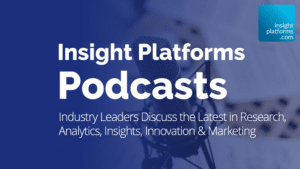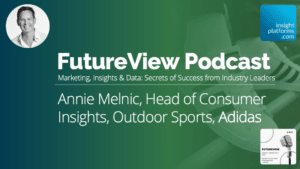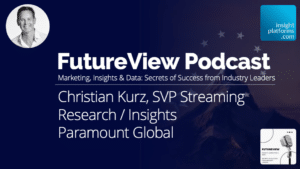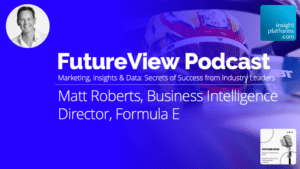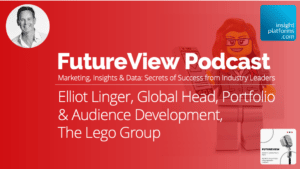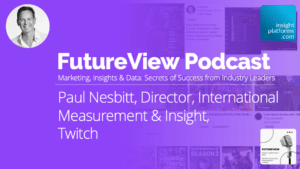What Brands Really Want from Research Partners
Painful pitches and proposals
When your clients are watching your pitch or reading your proposal, do you worry they might be thinking any of the following?
Here’s the uncomfortable truth: most buyers of research find themselves thinking at least some, if not most, of the above far too often.
So what do brands want from their research partners?
Since launching the FutureView podcast I’ve been fortunate enough to talk to senior stakeholders within some of the world’s leading consumer brands.
They’ve talked passionately around how they recommend agencies present themselves, what’s valuable to them as clients, as well as their bugbears. These clients share their advice in the spirit of collective improvement; their goal is to bring out the best of the companies they work with. And hence, ensure that the undoubted talent within those companies gets to both shine and drive tangible business outcomes.
You can listen to all episodes of the FutureView podcast here:
What follows here is by no a definitive guide to what brands want from research partners. You’ll need to listen to the linked podcasts for more detail. But these are some of the key themes and areas of advice.
1) Keep asking (informed) questions
“Client needs evolve over time…check whether the question we’re asking at the beginning is the same question we’re asking one month down the line, three months down the line”.
Annie Melnic, Adidas, Head of Consumer Insights Outdoor Sports.
C’mon, everyone does this right? Data scientists, ethnographers, semioticians, consultants – you name it – are all trained to look for patterns, and changes in patterns, based on the evidence in front of them. The industry is full of people who are great at this; except, apparently, when it comes to reading their clients’ needs and how they may have changed.
In terms of bugbears, brand representatives also make the point that generic questions – “what are your priorities?” – are not necessarily helpful. Instead, they want to see that you’re asking informed, pointed questions that show you’ve thought specifically about their business.
Listen to the whole conversation with Annie here:
2) Put the time in…prove you’re a real partner
“Sometimes you look for expertise, sometimes you look for speed but I constantly look for partnership.”
Christian Kurz, Paramount Global, SVP Streaming Research/ Insights
Probably every agency or supplier claims they’ll be a great partner, but how many really deliver? Heads of research consistently emphasize how important true partnership is, not least so they can guide agencies as to what their organisation is looking for.
As Paul Nesbitt at Twitch puts it: “I’m looking for big, deep collaborators who can work really really closely with my team….no matter how good an agency is, they never really understand the intricacies of the business, so partnership and working together is really important.”
Listen to the whole conversation with Christian here:
3) Simplify, and then simplify again
“Really find out, learn, understand what they want, who wants it and in what format they want it…sometimes that means three bullets in an email.”
Matt Roberts, Formula E, Business Intelligence Director
In a time-pressurised environment, more is rarely more. That maxim applies to pitches, proposals, products or presentations; stakeholders have developed particularly vivid allergic reactions to long corporate spiels and report decks. Now, this isn’t a suggestion to dumb down. And everyone recognises that capturing the essence of a proposition and then polishing it into a pithy, relevant summaries is difficult, especially if you’re in a relatively new relationship and learning how a client works.
Points 1 and 2 are all the more important here; you need to do the work up front and recognise that clients want to help you get to the most relevant answer.
To quote Matt Roberts again: “If it’s too complex it won’t land…remember the ultimate audience isn’t the insights team.”
Listen to the whole conversation with Matt here:
4) Be upfront about your strengths… and limitations
“Everybody is incredibly time poor…every few weeks we’re being sold on what the next big thing is. Be authentic, under-promise and over-deliver.”
Elliott Linger, The Lego Group, Global Head, Portfolio and Audience Development
This is especially relevant when pitching. Brands explain that they’re generally very sceptical around product companies or agencies that claim they can do everything. Be clear about what you do especially well – whether that’s sector expertise, unique supportive tech or a solution for a very specific industry problem.
As Christian Kurz also puts it: “Tell me what you have that the next person doesn’t… and then how that helps me”.
Above all, commissioning clients want you to be honest; if you have specific limitations to what you can provide that’s fine and they’ll respect you for telling them. Clearly this is difficult if you’re being pushed on sales targets, but don’t fake it…you won’t make it.
Listen to the whole conversation with Elliott here:
5) Be clear on how you’re going to reach and communicate with different audiences
“I think a lot of panels that do well with say, Gen Z, have something more interactive, community-based and they’re encouraging an interaction with the brand”.
Paul Nesbitt, Twitch, Director International Measurement and Insight
Clearly, there are many strengths to panels and ‘traditional’ methodologies but clients recognise they need to evolve. They’re not suggesting scrapping the old but are very aware that the means of reaching, and talking, to younger audiences needs to evolve. For ‘older’ audiences too….who wants to do long surveys with grids, non-adaptive open-ends, or rely solely on prospective customers who’ve signed up through third party panels?
If you’re dealing with a brand that wants to engage with audiences under 30 – and most do – then you need to be prepared to show you have solutions to reach and talk to consumers in dynamic intelligent ways. Fortunately, there are a ton of innovative companies and solutions on insightsplatforms.com that can help you!
Listen to the whole conversation with Paul here:
6) Be bold, be brave
“I often find that insight agencies are more passive with their opinions…rather than pushing back on clients and challenging, which happens a lot more with consultancies.”
Elliott Linger, The Lego Group, Global Head, Portfolio and Audience Development.
Now, this might sound contradictory in relation to some of the points above, but it isn’t. Yes, each client’s business is unique and you don’t know it as well as they do. But if you’ve genuinely partnered, you understand your client’s needs and you’ve immersed yourself trying to work to the right answer, you’ve also earned the right to an opinion.
Whether you’re aiming to be a consultancy, advice driven agency, or if you’re providing a technical solution, clients value a considered and independent viewpoint. If we’re prepared to challenge ourselves and go through the discipline of aligning data and insight to practical business outcomes, the sector will continue to prosper. And, by the way, you can probably charge more too!
Listen to the whole conversation with Elliott here:
Listen to all episodes in Season 1 of the FutureView podcast now.
Season 2 launches in late January 2023.

